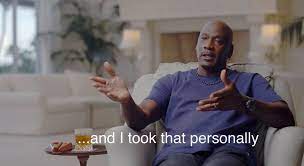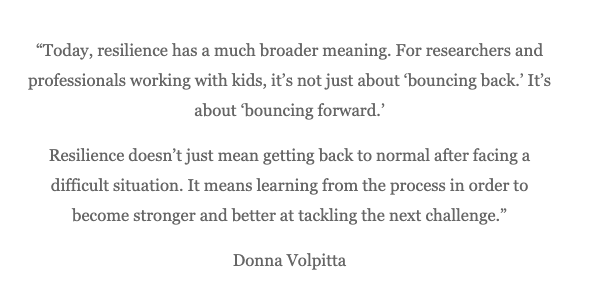Last week, I posted the first of this series on “Shifting to the Innovator’s Mindset” focusing on how we look at effort in learning.
Today, I wanted to share the second part of the series that is based on the image from “Innovate Inside the Box” which is a build-on from the table shared in the book “The Growth Mindset Coach” by Annie Brock and Heather Hundley

For the next five weeks (this is week 2), I will write a blog post and share a podcast with insights on each “situation” and what it looks like when we move from a Growth Mindset to an Innovator’s Mindset. Moving from a growth mindset to an Innovator’s Mindset is going beyond “knowing” and shifting to what we can do with what we know.
Today’s focus is on obstacles and how we overcome them and use them to our advantage.
I am writing each of these blog posts after recording the podcast so the ideas shared in each will be similar but with some differences 🙂
Here is a link to the podcast that you can listen to on Spotify, Soundcloud, or Apple Podcasts or watch on YouTube.
Bouncing Forward when Dealing with Obstacles
When Hundley and Brock connect the idea of “obstacles” to the growth mindset, they share the following idea; “Showing perseverance in the face of obstacles and setbacks is a common response.”
In today’s post, I wanted to go a step further in how the “Innovator’s Mindset” views obstacles as the following:
“When obstacles arise, the thinking is shifted to look for opportunities and possibilities.”
The funny thing is that I am taking the time to write this as my flight is delayed for an event. Instead of complaining and losing time, I have decided to make the most out of it and get this blog post written. I am going to do it anyway, so it might as well be now 🙂
In March of 2020, everyone’s world changed, but in different ways. For me personally, I remember all the events ahead of me being canceled and wondering what I would do moving forward. The first day that I noticed communication after communication being sent out to me, notifying me of cancellations, it became terrifying. That being said, but felt blessed that work was the only thing being affected in my family, but not my health.
But I did have a fear that I had no idea how I was going to support my family and a sense of depression felt inevitable.
I woke up the next day and thought about how hypocritical I would be focusing on “innovation” and dealing with obstacles was part of the thinking I had shared and committed to, and now not living up to my own words.
So I started to think about what shifts I could make.
Career-wise, I started doing things that I swore I would do if I had the time. I put together a self-paced course, worked with a team of authors to write “Because of a Teacher” and even dived deeper into my own podcast. I was finding a new professional groove.
But I also noticed that I was focusing so much on how my career would change that I wasn’t thinking about how I should personally change.
I have shared with audiences that during the first few months of Covid, I was “home” but I wasn’t “present.” These are two very different things.
And in June of 2020, we were blessed with our second child, Georgia, and that was when things really hit me that I needed to be a better husband and dad. Instead of thinking about how the “world sucks” I started asking, “How do I suck and what do I need to do to get better?”
So not only did I start to focus on my family more and the importance of being present, but I also realized I needed to get my health in order.
For years, I had struggled with weight gain (and this is something I will always struggle with) and just kind of accepted “this is who I am now” and never really changed my habits. But as more information came out regarding Covid and the co-morbidity of obesity, I realized that I was getting better at being “present” but I had no idea how long I would have to be that. There are no guarantees in life, but I wanted to increase my odds of living a longer and more joyful life.
I had to do something.
And I did.
And it was hard.
And still is hard.
But the thing is that I will always look for solutions until I find success, whatever that may be.
And so as I started to get my weight down, I noticed people cheering me on and finding new ways to push myself.
What was interesting was that my shift to focus on my personal growth over my career actually led to improvements in my work goals as well. I started rethinking how I could help people in a different way and what were the lessons I had learned in my personal journey that can help others, no matter where they professionally or personally.
What I focused on was not where I succeeded only, but how I learned and improved from my failures.
It is easy to see someone at a “successful level” and wondering, “How did they get there?” I wanted to share the failures that led to my success.
This is true at the professional level as well.
This past week, I lost an opportunity to keynote an event that I have wanted to do for years (and was slated to do in 2020), but it didn’t come to fruition.
Was I upset?
Yup.
But here is what I know.
In the past, some of the opportunities that I wanted most and didn’t get have led to the things that I cherish the most today.
And with each failure, I do my best to not blame someone else (although that could be easy to do) but look at how I can reshape, retool, and sometimes reinvent myself. I will tell you that I do have a chip on my shoulder with things, real or not, that says, “I’ll show you.” It might be because I grew up obsessing over Michael Jordan and his mentality.

I try to embed this thinking in my kids.
When something goes wrong with my own children, I often ask, “What did you learn from this situation, and how it will help you later?” I want them to be able to ask that question and provide an answer.
I love the Trevor Moawad thinking of asking when tough situations come up, “What does this situation require of me?” What is the next best thing you can do when an obstacle arises?
Does every situation need to be a learning opportunity? Nope. Some can just suck.
But the best thing to do with an obstacle is to look at it as a problem to solve. Sometimes it means digging in deeper, working harder, or even changing directions entirely. But giving up does more to hurt you than anyone else, even when it feels good and easy to do so.
As I share all of this, one of my favorite quotes that I connect with Covid is the following from Donna Volpitta:

A question I have been asking groups that I work with, in connection to this quote and Covid is, “Are we so desperately trying to get back to what education looked like in 2019, or are we trying to create something better today?” If we learned nothing from the obstacles of the past, then for me, it feels like time wasted. Would I rather not have had that experience? Of course. I also wish I would have got certain jobs, not lose people in my life, and deal with heartbreak.
But I know that the tough situations I have endured have not made me better, but I chose to become better because of those tough situations.
That is the way to view obstacles that put us in a better situation moving forward.